Finding ten poets like Mary Oliver was no easy task. She uses simple language to write about big ideas and quiet moments in nature. I don’t want to speak for other fans, but I think her poems give me permission to take a break from hustle culture and just be. Even after multiple readings, the first lines of her poem “Wild Geese” brings tears to my eyes. I think in complicated times a lot of readers are looking for soothing, wise poetry. And I can’t imagine more complicated times than these.
While it’s hard to find ten poets like Mary Oliver in every way, it’s easy to find solace and guidance in the work of many poets. And nature has inspired poetry since the beginning of the form (I’m looking at you, Gilgamesh, with your uncivilized, untamed forests). Poetry is one of the fastest growing genres in terms of book sales, along with being one of the oldest forms of writing in the world. If you’ve become enamored with the works of Mary Oliver are trying to decide what to read next, a good place might be one of these ten poets like Mary Oliver.
1. Ross Gay
Ross Gay is the author of three books of poetry: Against Which, Bringing the Shovel Down, and Catalog of Unabashed Gratitude, which won the 2015 National Book Critics Circle Award. He’s also co-authored chapbooks and written essays. His poetry is anchored in wonder and gratitude for the natural world. However, his words also can convey strong, overwhelming emotions in some of his poems. One of my favorite poems from Ross Gay is an early one called, “Thank You.”
If you find yourself half naked
and barefoot in the frosty grass, hearing,
again, the earth’s great, sonorous moan that says
you are the air of the now and gone, that says
all you love will turn to dust,
and will meet you there, do not
raise your fist. Do not raise
your small voice against it. And do not
take cover. Instead, curl your toes
into the grass, watch the cloud
ascending from your lips. Walk
through the garden’s dormant splendor.
Say only, thank you.
Thank you.
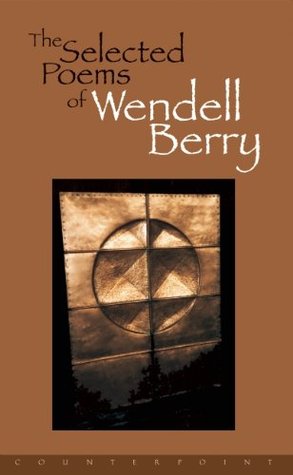 2. Wendell Berry
2. Wendell Berry
Wendell Berry has been called the “prophet for rural America.” He is a poet, novelist, and environmentalist with a strong critique of technology and modern agriculture. He lives in Kentucky, where he grew up and runs an old-fashioned farm. He’s written over 50 books of fiction, poetry, and nonfiction, most inspired by the landscape of his hometown. Leavings, A Timbered Choir, and The Collected Poems of Wendell Berry are all excellent poetry books to start with. For beautiful nature descriptions, the different life cycles, and a longing to return to a quieter, slower pace of life try Wendell Berry. His poem “The Peace of Wild Things” is a good example of his message.
When despair for the world grows in me
and I wake in the night at the least sound
in fear of what my life and my children’s lives may be,
I go and lie down where the wood drake
rests in his beauty on the water, and the great heron feeds.
I come into the peace of wild things
who do not tax their lives with forethought
of grief. I come into the presence of still water.
And I feel above me the day-blind stars
waiting with their light. For a time
I rest in the grace of the world, and am free.
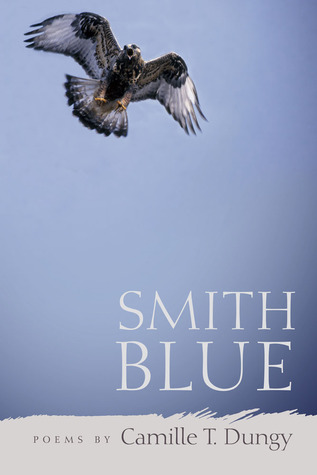 3. Camille T. Dungy
3. Camille T. Dungy
When Camille T. Dungy saw that Black voices were rarely included in anthologies of nature poems, she bolding edited the collection Black Nature: Four Centuries of African American Nature Poetry. Through the collection she argues that nature in poetry does not have to be pastoral or idealized to be considered important. She is also the author of four of her own poetry collections, including: Trophic Cascade,
Smith Blue, Suck on the Marrow, and What to Eat, What to Drink, What to Leave for Poison. Here is an excerpt from the title poem from her first poetry collection.
Only now, in spring, can the place be named:
tulip poplar, daffodil, crab apple,
dogwood, budding pink-green, white-green, yellow
on my knowing. All winter I was lost.
Fall, I found myself here, with no texture
my fingers know. Then, worse, the white longing
that downed us deep three months. No flower heat.
That was winter. But now, in spring, the buds
flock our trees. Ten million exquisite buds,
tiny and loud, flaring their petalled wings,
bellowing from ashen branches vibrant
keys, the chords of spring’s triumph: fisted heart,
dogwood; grail, poplar; wine spray, crab apple.
The song is drink, is color. Come. Now. Taste.
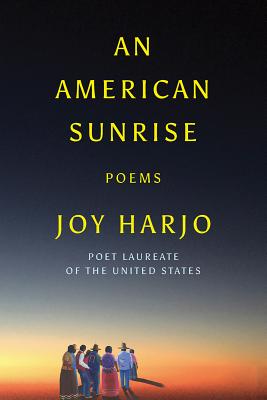 4. Joy Harjo
4. Joy Harjo
Joy Harjo, the United States Poet Laureate and a member of the Mvskoke Nation, is the first Native American Poet Laureate, now going into a second term. Her poems celebrate the landscape of the American Southwest. She reminds me of Mary Oliver, because of the spiritual nature to her poetry and the important of bearing witness to nature that comes through her lyrical, yet sparse, language. She’s authored 16 collections of poetry. She Had Some Horses and An American Sunrise are both beautiful collections to start with, spanning decades of her work. If you’ve never read her poems before, “Remember” is a stunning first Joy Harjo poem to read.
Remember the sky that you were born under,
know each of the star’s stories.
Remember the moon, know who she is.
Remember the sun’s birth at dawn, that is the
strongest point of time. Remember sundown
and the giving away tonight.
Remember your birth, how your mother struggled
to give you form and breath. You are evidence of
her life, and her mother’s, and hers.
Remember your father. He is your life, also.
Remember the earth whose skin you are:
red earth, black earth, yellow earth, white earth
brown earth, we are earth.
Remember the plants, trees, animal life who all have their
tribes, their families, their histories, too. Talk to them,
listen to them. They are alive poems.
Remember the wind. Remember her voice. She knows the
origin of this universe.
Remember you are all people and all people
are you.
Remember you are this universe and this
universe is you.
Remember all is in motion, is growing, is you.
Remember language comes from this.
Remember the dance language is, that life is.
Remember.
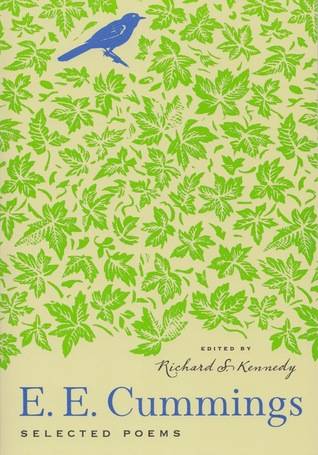 5. E.E. Cummings
5. E.E. Cummings
I know E.E. Cummings might be considered a slightly strange addition to a poets like Mary Oliver list. Mary Oliver’s language is simple and straightforward with a serious spiritual quality. Cummings’s poems are avant-garde, experimental, and whimsical, sometimes to the point of silliness. But like Mary Oliver, Cummings experimental style of writing uses few words to communicate big ideas. Many Cummings poems also celebrate nature and use environmental themes as metaphors for human emotions. Most poetry readers have come across E.E. Cummings at some point, in English classes or perhaps read aloud at a wedding. But some of his less read poems are worth a second try, like “Pity This Busy Monster, Manukind,” which warns of technology taking over the natural environment.
pity this busy monster, manunkind,
not. Progress is a comfortable disease:
your victum (death and life safely beyond)
plays with the bigness of his littleness
-electrons deify one razorblade
into a mountainrange; lenses extend
unwish through curving where when until unwish
returns on its unself.
A world of made
is not a world of born-pity poor flesh
and trees, poor stars and stones, but never this
fine specimen of hypermagical
ultraomnipotence. We doctors know
a hopeless case if-listen:there’s a hell
of a good universe next door; let’s go
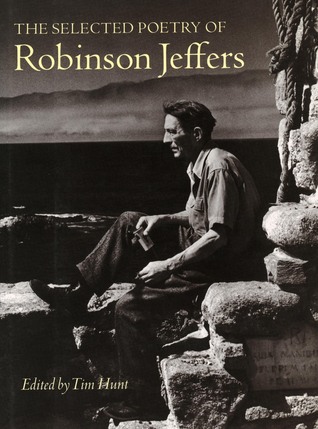 6. Robinson Jeffers
6. Robinson Jeffers
One other so-called classic poet I would recommend for fans of Mary Oliver is Robinson Jeffers. Jeffers came before Mary Oliver’s time, and devoted his entire life and his entire writing oeuvre to his reverence of nature. In fact, he argues for an “inhumanism” philosophy where humans should be regarded as inferior to animals and nature. The Selected Poetry of Robinson Jeffers gives a good overview of the decades of poetry he composed. Here is a poem, “Rock and Hawk,” that reminds me of Mary Oliver in part because of the bird symbolism.
Here is a symbol in which
Many high tragic thoughts
Watch their own eyes.
This gray rock, standing tall
On the headland, where the seawind
Lets no tree grow,
Earthquake-proved, and signatured
By ages of storms: on its peak
A falcon has perched.
I think, here is your emblem
To hang in the future sky;
Not the cross, not the hive,
But this; bright power, dark peace;
Fierce consciousness joined with final
Disinterestedness;
Life with calm death; the falcon’s
Realist eyes and act
Married to the massive
Mysticism of stone,
Which failure cannot cast down
Nor success make proud.
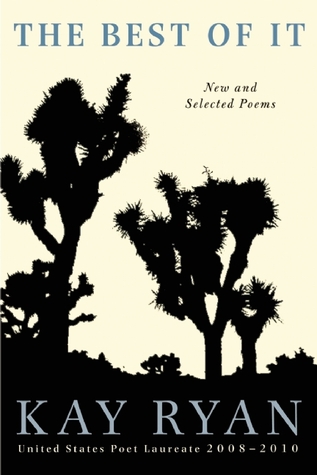 7. Kay Ryan
7. Kay Ryan
Kay Ryan is a former Poet Laureate, a MacArthur Fellow, and a Pulitzer Prize winning poet. Her poetry is condenses large concepts into small poems. And the lack of self confession in her poetry emphasizes the ideas and observations she writes about. But despite the serious nature of her work, she often injects her poetry with witty observations and interesting rhyme schemes. She’s written several collections of poetry over the last four decades, but I recommend starting with The Best of It: New and Selected Poems or The Niagara River. Below she reads from her poem “Octopus.”
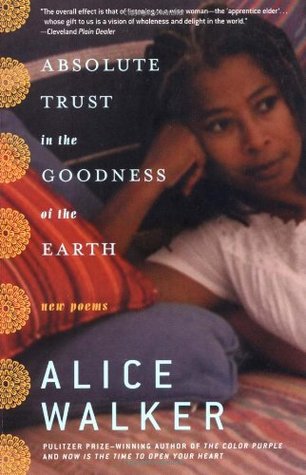 8. Alice Walker
8. Alice Walker
Alice Walker is better known as a prominent novelist of books like The Color Purple; she also wrote six volumes of poetry. Her poems emphasize the importance of language and she often draws inspiration and lessons from environmental sources. For readers who enjoy Mary Oliver, I suggest trying Absolute Trust in the Goodness of the Earth or Horses Make a Landscape More Beautiful. Her poem, “When You See Water” has been one that I return to over and over. Although it has few words, the big ideas remind me not to over-center my viewpoints looking at the world.
When you see water in a stream
you say: oh, this is stream
water;
When you see water in the river
you say: oh, this is water
of the river;
When you see ocean
water
you say: This is the ocean’s
water!
But actually water is always
only itself
and does not belong
to any of these containers
though it creates them.
And so it is with you.
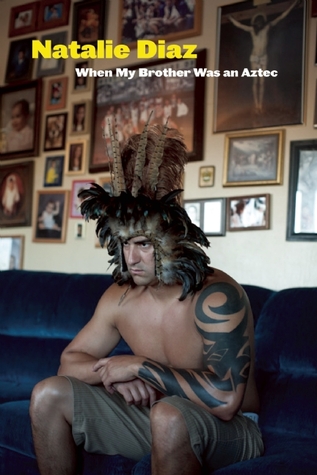 9. Natalie Diaz
9. Natalie Diaz
Natalie Diaz is the author of two poetry collections, her celebrated debut When My Brother Was an Aztec and Postcolonial Love Poem, which came out earlier this year. She is Mojave and an enrolled member of the Gila River Indian community. Her poetry explores family dynamics, Mojave life, and the oppression of indigenous people in America, often with nature themes and imagery. Here is an excerpt of Natalie Diaz’s poem, “Abecedarian Requiring Further Examination of Anglikan Seraphym Subjugation of a Wild Indian Rezervation.”
Angels don’t come to the reservation.
Bats, maybe, or owls, boxy mottled things.
Coyotes, too. They all mean the same thing—
death. And death
eats angels, I guess, because I haven’t seen an angel
fly through this valley ever.
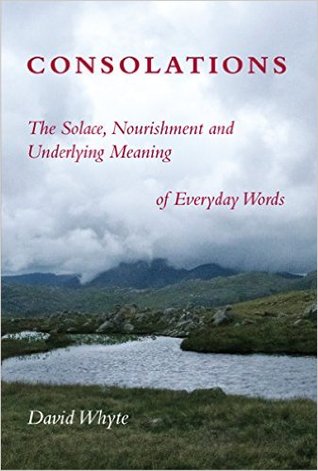 10. David Whyte
10. David Whyte
David Whyte reminds me of Mary Oliver because his writing is spiritual and sparse. He often draws on nature metaphors and imagery in his writing as well. While not poetry, I highly recommend Consolations: The Solace, Nourishment and Underlying Meaning of Everyday Words, where the poet chooses 52 words, starting with “alone” and ending with “work,” to deeply ruminate on. If you would prefer to read his poetry, try The House of Belonging, which includes the following poem, “Sweet Darkness.”
When your eyes are tired
the world is tired also.
When your vision has gone,
no part of the world can find you.
Time to go into the dark
where the night has eyes
to recognize its own.
There you can be sure
you are not beyond love.
The dark will be your home
tonight.
The night will give you a horizon
further than you can see.
You must learn one thing.
The world was made to be free in.
Give up all the other worlds
except the one to which you belong.
Sometimes it takes darkness and the sweet
confinement of your aloneness
to learn
anything or anyone
that does not bring you alive
is too small for you.
I hope other Mary Oliver devotees have found new poetry to explore. If you are still looking for poems to read, maybe try this round up of 33 Beautiful and Brutal Nature Poems. Or perhaps you just want to give your favorite Mary Oliver poems a reread. There is always more wisdom to be found in her words.
Source : 10 Gorgeous Poets Like Mary Oliver










